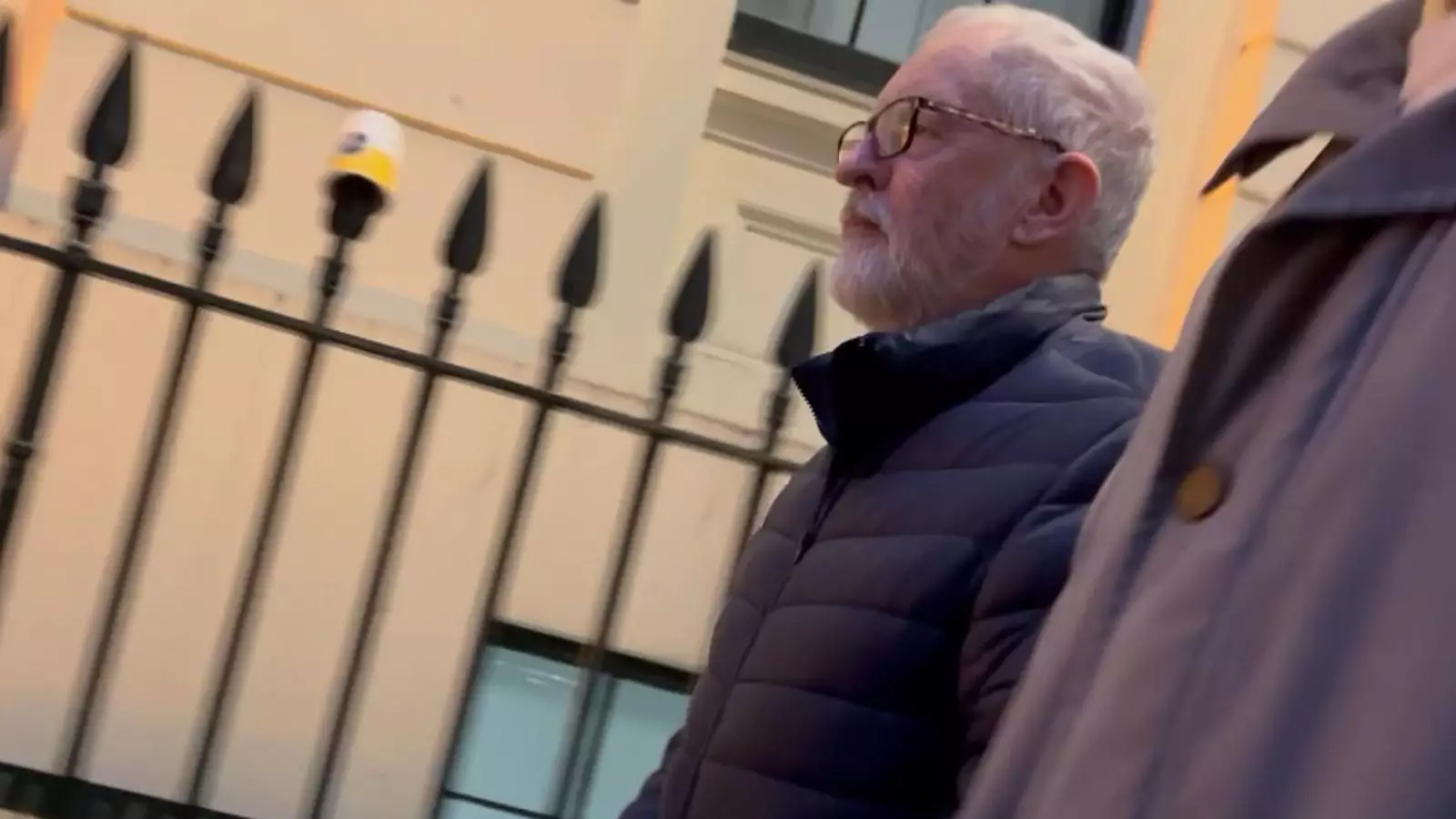The political landscape of the United Kingdom has encountered yet another upheaval following the decision of Jeremy Corbyn, the 75-year-old former leader of the Labour Party, to submit himself for police questioning regarding a pro-Palestinian rally in central London. Accompanied by John McDonnell, the former shadow chancellor, Corbyn arrived at Charing Cross Police Station to voluntarily share his perspective with law enforcement officials. The insistence on a cautious approach during this post-protest investigation signals the delicate fabric of public discourse intertwined with law enforcement’s oversight during protests—a theme that conjures both support and skepticism among the public.
In recent times, the protests organized by the Palestine Solidarity Campaign (PSC) have attracted both localized and global attention. The events on a Saturday preceding this governmental inquiry took place against a backdrop of rising tensions in Israel and Gaza, amidst reports of a ceasefire and hostage release agreement. Arising from these political developments, the PSC organized a rally to voice solidarity and mourn those who lost their lives during the conflict. However, the police’s account of the day of the protest has sparked considerable negotiation of narratives—claiming that the organizers intended to breach the agreed-upon terms, which has been forthrightly contested by the PSC.
The aftermath of the protest has seen nine individuals charged with public order offences. The police alleged that violations occurred amidst a deliberate effort orchestrated by protest organizers, which the PSC vehemently denies. This tension reflects a broader discourse about the management of public demonstrations, especially concerning sensitive issues such as Palestine and Israel. The police stated that the nature of the protest was to be static, yet the reality depicted by the PSC contradicts the notion of a forceful breach.
Complicating matters further, the Metropolitan Police have indicated that one of the individuals charged is Piers Corbyn, Jeremy’s brother, who has become embroiled in the escalating controversy. The attention to their familial connection adds another layer to the story—where sentiments of solidarity are mixed with the struggles of those who oppose governmental narratives. The impending hearings at Westminster Magistrates’ Court promise to unveil a deeper investigation into the events, warranting close observation from various sectors of society.
Both Jeremy Corbyn and John McDonnell have openly contested the police characterization of the rally. Corbyn maintained that his participation was part of a peaceful delegation aimed at honoring the memory of children lost in Gaza. He emphasized that the police facilitated their passage, countering the assertion that they forced their way through barriers. Such statements call attention to how opposing narratives can influence public perception and the understanding of law enforcement’s role during protests.
McDonnell reiterated Corbyn’s emphasis on a tone of civility, expressing that their procession was reflective of a respectful tribute rather than an act of aggression or resistance. Their shared position embodies a fraught dialogue between perceived activism and legal ramifications, which serves to polarize public opinion further. As independent politicians, both men remain significant figures in contemporary UK politics. Their enduring support for Palestine could potentially reposition them within the political arena wherever discussions of civil rights, expression, and public assembly are navigated.
The events surrounding this protest and the subsequent police inquiries reveal underlying tensions in British political culture. They illustrate how activism, especially when regarding contentious issues like the Israel-Palestine conflict, can trigger various responses from both law enforcement and political leadership. The fallout invites pressing questions about the protection of civil liberties, the nature of protest, and the multifaceted role of leaders in managing discourse.
As the situation develops with upcoming court appearances for those charged, it will be imperative to monitor how these events will shape public perception not only of the individuals involved but of the broader socio-political landscape in the UK. The outcomes could very well determine how future protests are organized and managed, and whether the voices of protesters can continue to emerge amidst a complex interplay of activism and legal scrutiny.

Leave a Reply